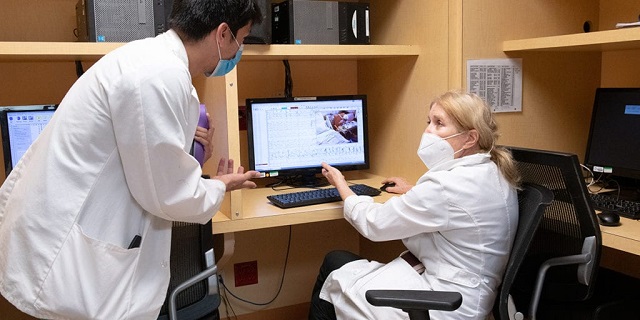COVID-19 and the Adolescent Brain
Documenting a case of COVID-19 in an adolescent patient with encephalopathy.

Hackensack Meridian Joseph M. Sanzari Children’s Hospital published a case report in July 2020 in Neurology: Clinical Practice documenting encephalitis in an adolescent associated with COVID-19 infection. Previously, healthy children had rarely been reported to have severe manifestations of COVID-19. The Joseph M. Sanzari Children’s Hospital paper illustrates an adolescent patient with severe infection with neurologic involvement. At the time of publication, neurologic manifestations had been reported in adult patients with COVID-19, including rare cases of encephalitis. However, pediatric patients with COVID-19 infection and encephalitis with evidence of central nervous system pleocytosis in cerebrospinal fluid (CSF) analysis had not been reported at this point in time.
The patient presented to the emergency department with altered mental status, including difficultly to arouse, confused, speaking incoherently and following commands inconsistently. Additional symptoms included:
- Generalized weakness without any focal findings
- Upon presentation, he was having seizure-like movements and treated with Lorazepam
- Hyponatremia
- Low oxygen saturation
CSF was obtained and was significant for pleocytosis with lymphocyte predominance and elevated CSF protein. CSF meningoencephalitis PCR panel was negative. The tested Nasopharyngeal SARS-CoV-2 PCR was positive and CSF was experimentally tested for SARS-CoV-2 and was negative. Video electroencephalogram (EEG) was consistent with encephalopathy, showing slow background without epileptiform discharges or seizures. With a normal head CT and improving neurological examination, an MRI of the brain was not obtained in order to limit exposure in the hospital.
The patient was treated with remdesivir for a 10-day course. The patient’s neurologic symptoms started to improve early in the hospital course and the patient was discharged home after a two-week hospitalization with improved mental status and overall condition.

